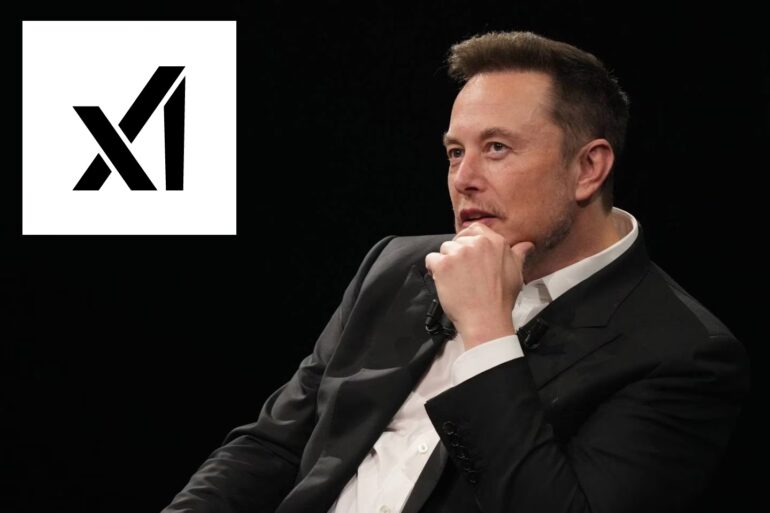TL;DR:
- Elon Musk announces his new AI venture, xAI, with a focus on building a super-intelligent AI capable of unraveling scientific mysteries and understanding the universe.
- xAI aims to surpass human intelligence and benefit society by addressing complex problems.
- Musk emphasizes xAI’s differentiation from consumer AI products, positioning it as an alternative to larger AI companies.
- The current capabilities of AI tools are limited to predicting images and words, with human-level AI still potentially decades away.
- xAI seeks to explore enigmas like dark matter, gravity, and the Fermi paradox.
- The goal of xAI is to create a general-purpose problem-solving machine to empower humanity and augment human capabilities.
- Musk’s company plans to work closely with both Tesla and Twitter, leveraging their resources.
- The event highlights Musk’s concerns about the implications of AI and his commitment to upholding truth and honesty.
Main AI News:
Elon Musk, the visionary entrepreneur, took to the virtual stage on Twitter to unveil his latest endeavor, xAI, a groundbreaking artificial intelligence (AI) company. With an unwavering ambition, Musk outlined a profound goal: constructing a super-intelligent AI capable of unraveling the mysteries of science and comprehending the intricacies of the universe. In a live audio event, Musk, accompanied by a team of exceptional male experts in mathematics, AI, and engineering, expounded on their mission to create an AI surpassing human intelligence, ultimately aiming to drive progress and foster societal benefits. Musk emphasized that the fundamental objective of xAI is to fathom the complexities of our reality and grasp “what the hell is really going on.”
Notably, the event showcased Musk’s distinctive focus on tackling profound scientific inquiries, differentiating xAI from the direct competition with industry giants such as OpenAI, Google, and Microsoft, who primarily concentrate on consumer-oriented AI products. Although Musk acknowledged that xAI could be seen as an alternative to larger AI companies, he humbly admitted that the venture is still in its early stages of development, referring to it as “embryonic.” He conceded that catching up to the likes of OpenAI and Google would require time and perseverance.
The recent surge in AI capabilities has astounded many experts in the field, prompting some to revise their estimates regarding the timeline for surpassing human intelligence. However, the current crop of AI tools operates by predicting subsequent images or words without providing any evidence of their ability to solve complex scientific questions. Numerous AI researchers argue that achieving human-level AI may remain decades away, if attainable at all.
Musk expressed his belief that xAI could shed light on enigmatic phenomena such as dark matter or unresolved aspects of gravity. He delved into an elaborate discourse on the “Fermi paradox,” a thought-provoking question that ponders why humans have yet to encounter extraterrestrial life. The paradox suggests that technological civilizations are prone to self-destruction or obliteration by external forces before traversing other solar systems.
Notably, Jimmy Ba, a distinguished AI researcher and professor at the University of Toronto, who joined Musk’s venture, emphasized the goal of developing a versatile problem-solving AI capable of tackling humanity’s most daunting challenges. Ba posed the critical question: How can we build a general-purpose problem-solving machine to empower humanity? How can we harness these tools to augment our capabilities and drive progress?
In his characteristic candidness, Musk highlighted his dissatisfaction with existing chatbots, criticizing their politically correct nature. He warned that xAI’s AI might offend individuals because it will unflinchingly speak the “truth,” uncompromisingly upholding honesty and accuracy.
Musk’s vocal concerns about the implications of AI date back several years when he famously compared inventing super-intelligent computers to “summoning the demon,” perceiving it as a potential existential threat to humanity. While he co-founded OpenAI, the creator of ChatGPT, in 2015, he distanced himself from the company in 2018 due to disagreements with its leadership. Recently, Musk voiced his grievances over AI companies, including OpenAI, leveraging Twitter data for training their bots.
As the primary stakeholder of Tesla, the renowned electric-vehicle manufacturer, Musk acknowledged the robust AI team within the company, which has been dedicated to advancing self-driving technology for years. Musk affirmed that his new AI venture would collaborate closely with both Twitter and Tesla. However, he faced criticism from investors, who questioned the allocation of Tesla resources to support his other ventures, particularly Twitter. Musk addressed these concerns, ensuring that any collaboration with Tesla would adhere to the necessary protocols as a publicly traded company with distinct investors.
Training the “large language models” that underpin modern AI tools requires extensive data and substantial computational power, rendering it an exorbitantly expensive process. Tesla, leveraging its substantial computer processing capacity, has made significant strides in developing self-driving technology. While Musk acknowledged the need for computing power in xAI, he indicated that the requirements would be comparatively modest compared to other companies. Igor Babuschkin, a former researcher at Google and OpenAI who joined xAI, emphasized the intention to keep the team relatively small.
The commencement of the event was momentarily delayed as Musk awaited a larger audience. He mentioned tweaking Twitter’s algorithm to accommodate more participants, ensuring that the space was accessible to a broader community. Approximately 34,000 individuals listened attentively when the event finally commenced, attesting to the immense interest in Musk’s visionary pursuits.
Conclusion:
Musk’s launch of xAI marks an ambitious entry into the AI market. By focusing on solving scientific mysteries and developing a super-intelligent AI, xAI aims to differentiate itself from consumer-oriented AI companies. This move reflects Musk’s long-standing concerns about AI’s potential threats and his commitment to advancing humanity’s understanding of the universe. The collaboration with Tesla and Twitter showcases Musk’s intention to leverage existing resources to drive progress. However, the success of xAI will depend on its ability to surpass current AI capabilities and make significant breakthroughs in solving complex scientific questions. The market will closely observe xAI’s progress and its potential impact on the broader AI industry.

